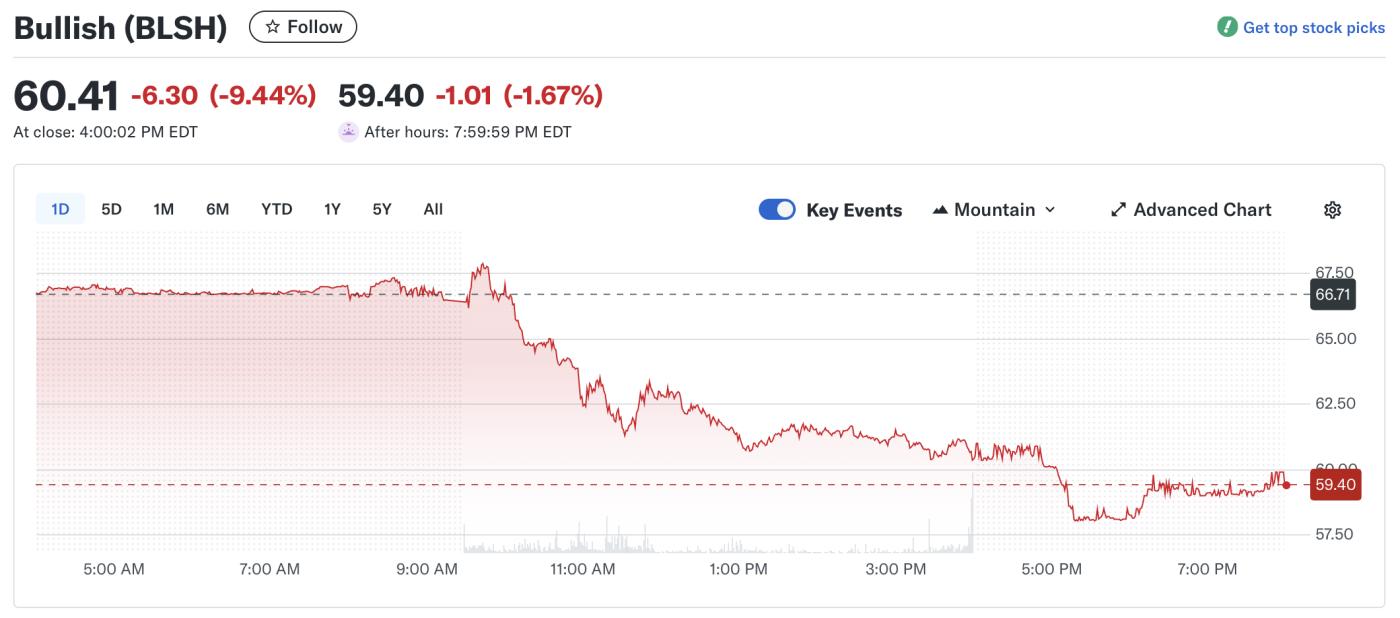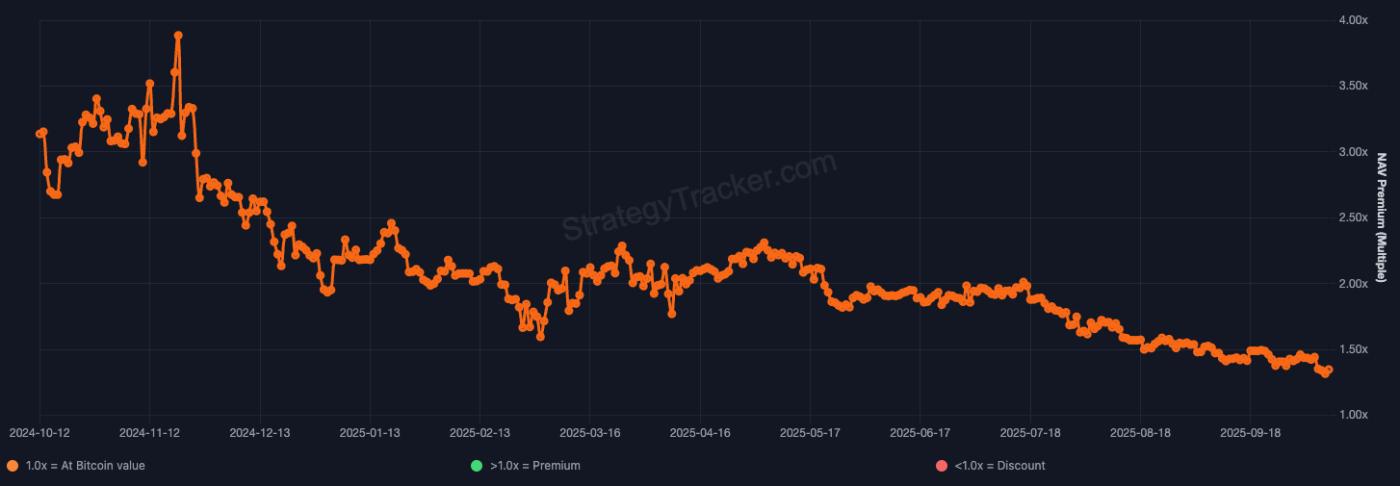Donald Trump announced that he will impose an additional 100% tariff on Chinese products starting November 1, in strong response to China's decision to restrict exports of rare earth materials needed for high-tech manufacturing.
The market reacted strongly to the announcement, with the S&P 500 down 2.7% from the previous day. The news caused major volatility globally, sending crypto-related stocks sharply lower as investor risk appetite weakened.
Crypto stocks lead double-digit market sell-off
The renewed trade tensions between the United States and China have sparked a major market sell-off that has directly affected crypto-related stocks. Leading digital asset companies saw sharp declines across the board as of Friday’s market close in New York.
Global cryptocurrency exchange Coinbase (COIN) closed at $357.01, down 7.75% from its previous close of $387. The stock opened at $387.66 and fell as low as $351.63 during the session, reflecting increased investor risk aversion.
 BLSH stock performance over the past day / Source: Yahoo Finance
BLSH stock performance over the past day / Source: Yahoo FinanceCryptocurrency financial services firm Bullish (BLSH) also posted a sharp decline, falling 9.42% to $60.37 from its previous close of $66.65. The stock hit $68 earlier in the day but fell to $60.25 due to the overall market weakness.
Japan-based Bitcoin treasury firm Metaplanet (MTLF) ended down 2.25% at $3.48, compared to its previous close of $3.56. Although it rose to $3.65 during the day, the gains were short-lived as the stock fell back later in the session.
Bitcoin mining company MARA Holdings, Inc. (MARA) suffered one of the sharpest declines, ending down 7.67% at $18.65. The stock fell sharply around 11 a.m. after attempting an early recovery and continued to weaken in after-hours trading, falling another 1.72% to $18.33, indicating continued investor concern.
Strategy's mNAV Highlights Bitcoin Treasury Risks
Leading Bitcoin Treasury Strategy ( MSTR ) was also hit hard by the sell-off. The stock closed at $304.79 on the same day, down 4.84% from $320.29 the day before. During the session, it fluctuated between a high of $323.43 and a low of $303.57, showing high volatility.
More importantly, attention has shifted from the short-term decline in the stock price to deeper concerns about the company's fundamental valuation metrics. Analysts report that the company's multiple-to-net asset value ( mNAV ) has fallen below 1,180, marking its lowest level in nearly two years (19 months).
 Strategy mNAV Flow / Source: saylortracker.com
Strategy mNAV Flow / Source: saylortracker.comGeoffrey Kendrick, head of digital asset research at Standard Chartered, warned that maintaining an mNAV above 1.0 is essential for digital asset treasury ( DAT ) companies to grow their assets. Values below that threshold, he said, indicate weak balance sheets and increased consolidation pressure in the industry.
Strategy and similar firms are also facing increasing pressure from the PIPE (Private Investment in Public Equity) financing structures used to finance their Bitcoin purchases. According to a CryptoQuant report last month, Bitcoin treasury shares tend to converge toward their discounted PIPE issuance prices, a model that has left some early investors facing losses of up to 55%.
 Publicly Listed Bitcoin Treasury Companies / Source: bitcointreasuries.net
Publicly Listed Bitcoin Treasury Companies / Source: bitcointreasuries.netStrategy currently holds about $78 billion worth of BTC, while its market Capital is $94 billion, implying a $16 billion difference. However, since the company's total profit over the past 12 months was less than $350 million, most analysts XEM the difference as a reflection of investor optimism tied to founder Michael Saylor's efforts to promote Bitcoin-based investment and debt products.








